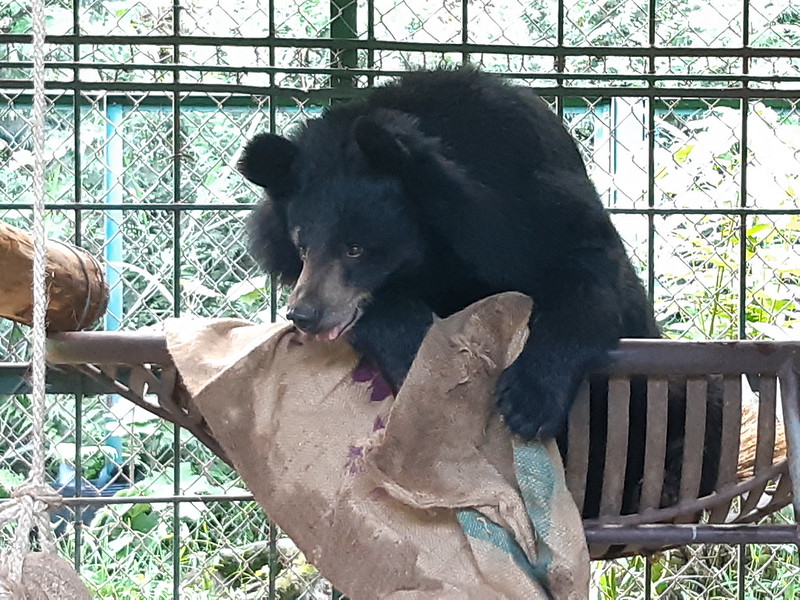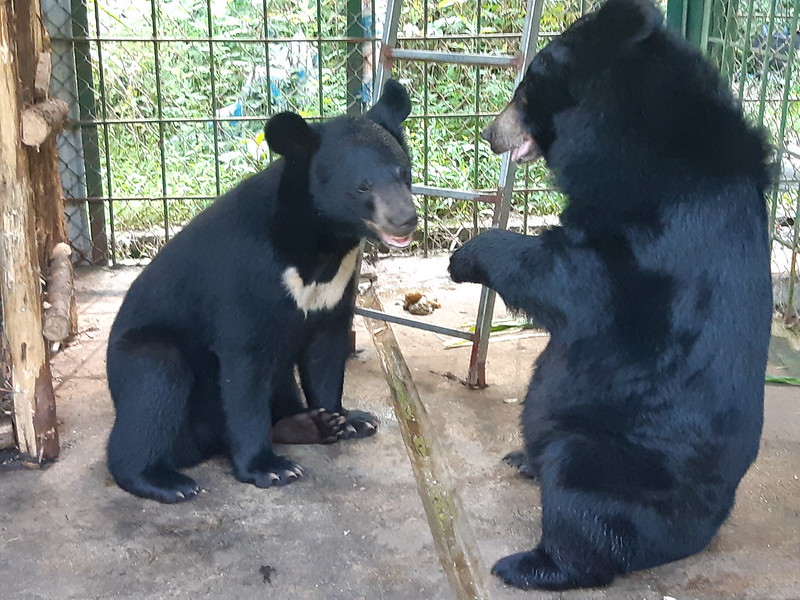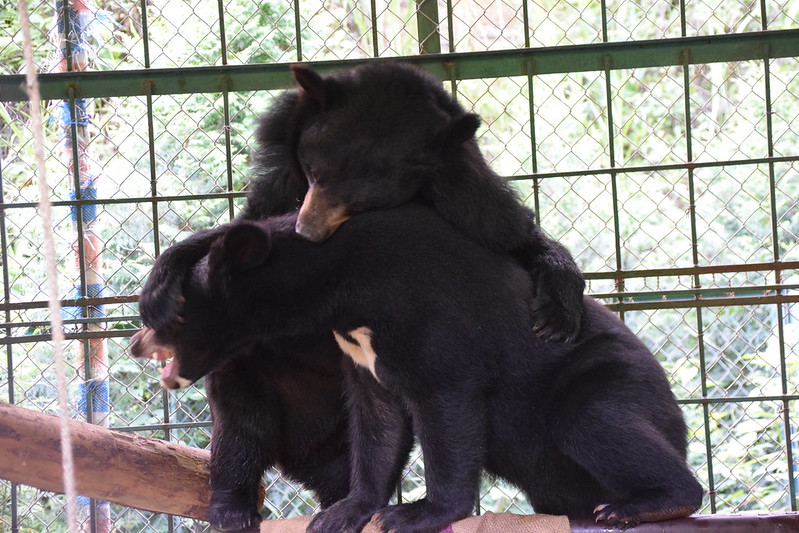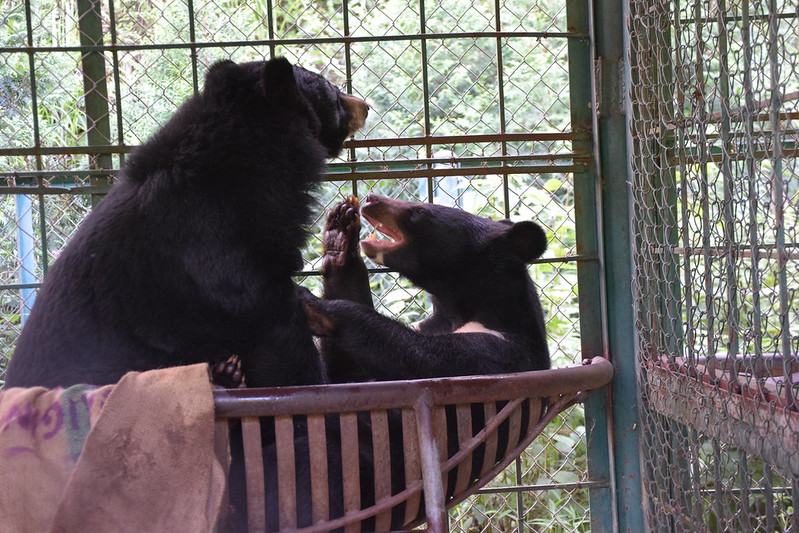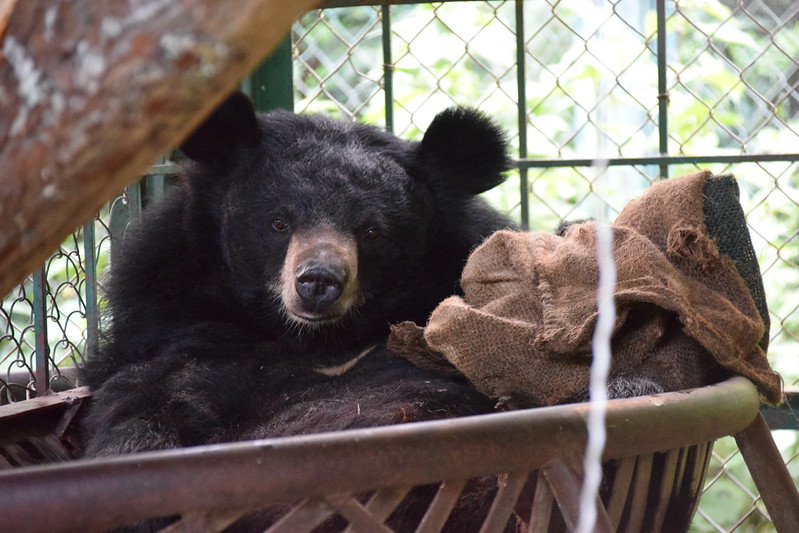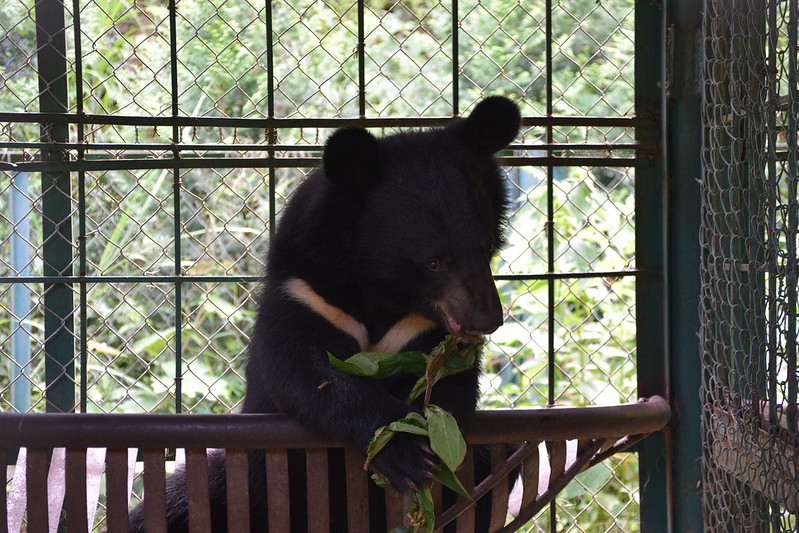State rescue centres upgraded as Vietnam prepares to end bear bile farming
28 June 2018
As the government’s official partner in the campaign to end bear bile farming, Animals Asia revamps rescue centres and trains staff in bear care.
In summer 2017, Animals Asia and the government of Vietnam signed a legally binding agreement that will see both parties work together to close every single bear bile farm in the country and transfer all the bears to sanctuary.
With hundreds of bears due to be rescued, new sanctuaries will certainly have to be built, but existing facilities also require upgrading to provide rescued bears with the quality of life they deserve.
Animals Asia Vietnam Director Tuan Bendixsen said:
“We’re working with our partners in government to ensure the country’s state-run rescue centres will be ready to receive and care for bears once farms begin to close. We’re aiming for the highest standards of welfare possible – given the limited resources – and that requires upgrades to facilities as well as in-depth training for centre staff.
“We’ll be leading by example with our own sanctuary but also providing the guidance and assistance each party needs to do their part for the bears. With hundreds of bears to care for, it is vital that everyone has the skills they need to provide much-needed sanctuary.”
In Vietnam’s mountainous northern province of Lao Cai lies the Hoang Lien National Park. A small rescue centre on site houses two moon bears - one rescued from a bile farm, the other seized from poachers as a cub.
The lives of the two bears – Vi Hoa and Da Hoa – were vastly improved after staff from the park visited Animals Asia’s bear sanctuary earlier this year to learn vital skills, including husbandry routines, how to provide enrichment, bear nutrition and how to behave around bears in order to mitigate stress.
To further boost the bears’ welfare, a team from Animals Asia visited the park in May to integrate the two bears for the first time.
Animals Asia Bear Manager Sarah van Herpt, who took part in the integration, said:
“Integrating bears can be tricky as each animal is an individual and reacts differently to others. First meetings must be handled with care to ensure that both bears feel comfortable and to reduce any stimuli which could lead to aggression.”
The integration was further complicated by the fact that Vi Hoa and Da Hoa are of different ages, while Da Hoa particularly is a nervous bear having been poached from the wild as a cub.
Sarah said:
“The staff at Hoang Lien have done a wonderful job with Da Hoa since I last met her. She has really come out of her shell and blossomed into a more outgoing and curious young bear.
“In the past she would hide up in the very top corner of her den when people were around, but now she is not afraid at all. This good work has reduced her stress levels enormously and she can now be seen playing and investigating the enrichment the team have learned to prepare for her.”
With Da Hoa now being more outgoing, the integration was a success. Both bears were seen wrestling with each other and even sharing food, while no aggression was observed.
Sarah said:
“Being integrated will make a huge difference to these bears’ lives. Although moon bears are believed to be mostly solitary in the wild, isolation in captivity is a different matter altogether. We know from experience that relationships with other bears can be hugely beneficial to rescued bears, providing them with vital stimulation and play opportunities.”
Animals Asia’s vets plan to return to Hoang Lien in the future to give both Vi Ho and Da Hoa full health checks to ensure they aren’t suffering from any painful medical conditions which haven’t been detected through visual examinations.
The landmark MOU between Animals Asia and the Vietnam government has also been cited as a key part of the Southeast Asian nation’s efforts to eradicate the market for illegal wildlife products following the 2017 Hanoi Conference on the Illegal Wildlife Trade.
The contract between the Vietnamese government and Animals Asia will see the approximately 800-1,000 bears still held in captivity moved to sanctuaries by 2022.
READ MORE:
Vietnam agrees plan to close all bear bile farms
Explained: The roadmap to ending bear bile farming in Vietnam
Reaction: how the plan to rescue 1,000 bears was received
BACK
